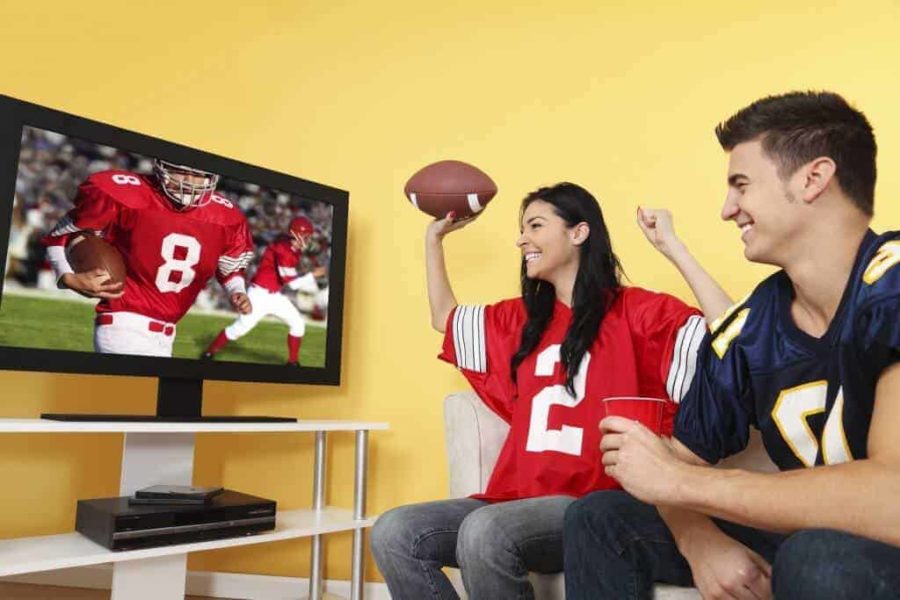In a study of stadiums of 21 NFL teams sponsored by 26 large publicly traded companies, financial experts in the UConn School of Business found that stock returns of the sponsoring firms are affected by the outcomes of important games played in their stadiums.
A review of 3,399 games (1,710 home games) between 1997 and 2013 showed that following home wins inMonday Night Football and post-season games, as well as contests categorized as upset victories, the stock of the stadium sponsor generated 50 to 80 basis points higher than after losses in the next trading day, and that the stock increase held over the next few days. A basis point is a unit of measure used in finance to describe the percentage change in the value or rate of a financial instrument.
The study is the first to examine the effect of professional sports outcomes on the stock returns of the team’s sponsors. As of 2013, 62 percent of the teams’ stadiums/arenas in the four major league sports in the United States – football, baseball, basketball, and hockey – were sponsored by publicly traded companies. Previous studies have focused on the relationship between the performances of national sports teams in international competitions and the movements of the national stock exchanges.
“Outcomes of NFL games could serve as a reasonably exogenous instrument for investor sentiment,” is the conclusion drawn by the researchers, Assaf Eisdorfer, a finance professor at UConn, and Elizabeth Kohl ’15 Ph.D., a doctoral student at UConn during the study who is now an accounting professor at the University of Cincinnati. The study will be published next year in the journal Critical Finance Review.
The study, “Corporate Sport Sponsorship and Stock Returns: Evidence from the NFL,” distinguishes between the psychology of investors known as market sentiment, and rational market reaction that reflects real cash flow implications of the game outcome.
Eisdorfer says television and in-stadium advertising sponsorship of NFL games costs millions of dollars for a limited promotion of businesses and their products, while stadium sponsorship offers extended exposure during games in the post-season. This year’s post-season begins Jan. 9 with the Wild-Card round, culminating in the Super Bowl on Feb. 7 at Levi’s Stadium in Santa Clara, Calif.
“Stadium sponsorship is even more extreme for a playoff game, which is worth a lot more money,” he says. “If you just won a playoff game and the next week you host another playoff game, there will be more exposure for your stadium sponsor.”
Monday Night Football games have been promoted as a unique national showcase for teams and sponsorships because it is the only game played that day in prime time television viewing. During the NFL playoffs, the number of games is limited, and unexpected game outcomes – an upset win or loss – affects the sentiment of devoted fans who may be investors.
Eisdorfer says the size of next-day stock trades of the stadium sponsors was reviewed for individual investors rather than institutional trades, noting that the average size of an individual trade is typically smaller.
“After wins when the sponsor price is going up, the average size of the trade is smaller, which means the driver is the individual investor,” he says. “Overall we cannot say it’s only sentiment or only rational. We have some evidence for both. There is definitely some sentiment effect there.”
The researchers reviewed the stadium sponsor’s stock over the next few days to determine whether there would be a change in value following the initial surge from the victory, noting that the market would generally correct itself within that time period, but no changes were indicated. They also studied performance of a stadium sponsor’s stock after away games, when there would not be television exposure for the sponsor.
“We found that in away games, at least for Monday Night games and games with upsets, there is not much affect,” Eisdorfer says. “The effect is going dramatically down, which is consistent with the sentiment affect. But for playoff games we found the effect is still there.”


